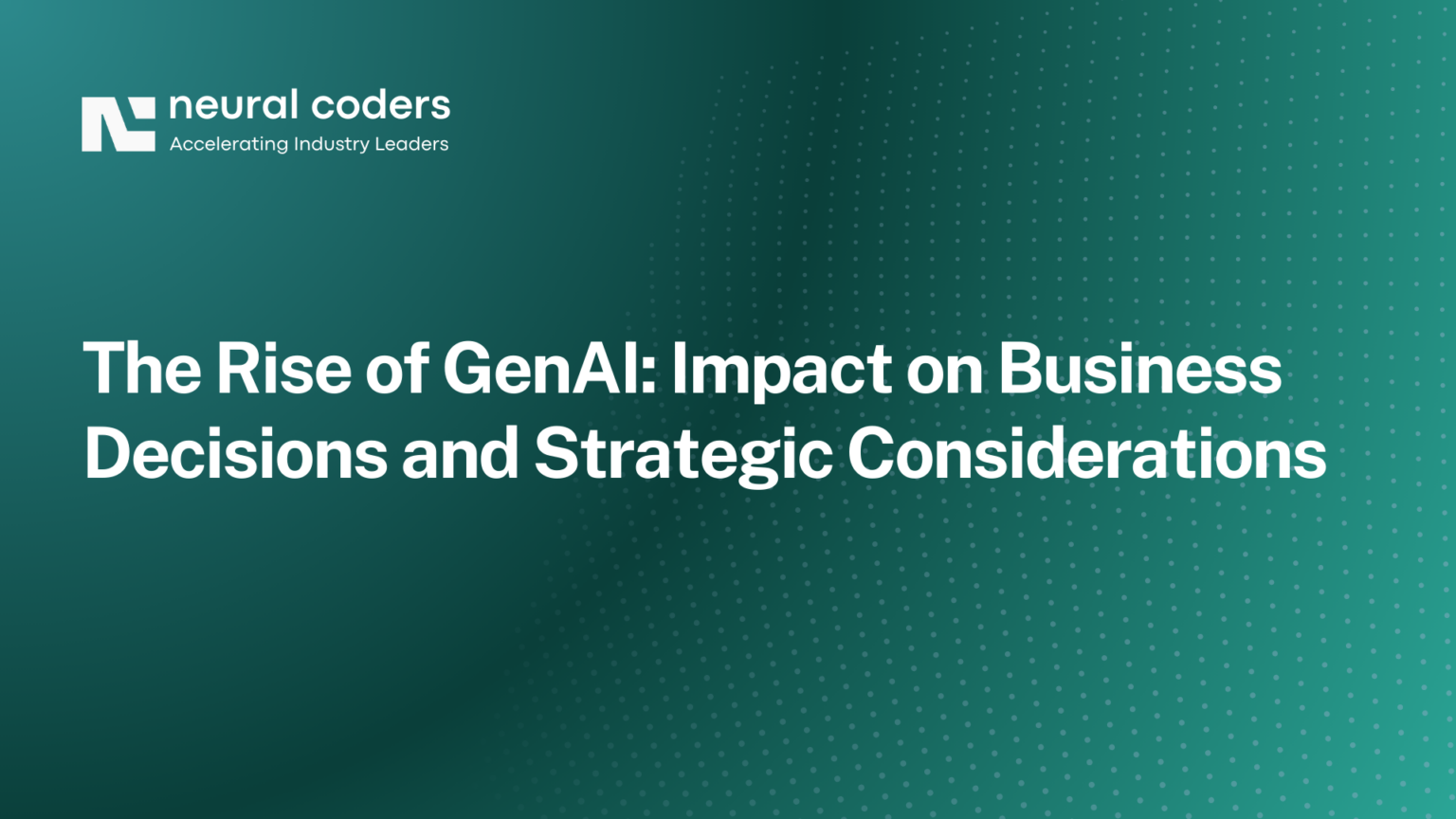Over the past decade, artificial intelligence (AI) has transitioned from a futuristic concept to a transformative force across nearly every industry. Among its most groundbreaking advancements is generative AI, which has revolutionized how businesses interact with customers, manage internal processes, and make strategic decisions. Models like ChatGPT, DeepSeek, and others have captured global attention not only for their capabilities but also for the challenges they present in terms of costs, governance, and integration.
The recent proliferation of generative models with accessible pricing and capabilities on par with industry giants signals a shift in the competitive AI landscape. Companies of all sizes are looking to implement these technologies to reduce costs, optimize processes, and personalize services. However, this rapid growth also introduces fundamental challenges for structuring strategic decisions to ensure successful and sustainable adoption.
Introduction
The pace at which generative artificial intelligence has evolved is unprecedented. In a landscape where technologies emerge and consolidate within months, businesses face a critical decision: how to implement generative AI effectively to maximize its impact without overextending resources.
The challenge lies in the fact that adopting these tools is not just about choosing the model with the best performance or lowest cost. It requires a comprehensive evaluation of the organization’s capacity to integrate these technologies into its processes, manage the data that powers them, and adapt to an environment where constant innovation is the norm. This article explores the key considerations businesses must keep in mind when adopting generative AI, offering a strategic framework to turn technological advances into sustainable competitive advantages.
Strategic Considerations for Implementing AI
To make generative artificial intelligence a catalyst for success, businesses need to adopt a clear, well-grounded strategy. The following points serve as a guide to navigate this process:
- Clarity on business objectives: Before adopting any technology, companies must define how generative AI aligns with their strategic goals, whether improving operational efficiency, enhancing customer experiences, or exploring new markets.
- Proper data management: The quality of results generated by AI directly depends on the quality and structure of the data used. Investments in data governance, collection, and cleaning strategies are essential.
- Cost-benefit analysis: While new models promise lower costs, detailed analyses should consider maintenance, scalability, and potential return on investment.
- Technological adaptability: AI integration should not occur in isolation. It is crucial for these technologies to fit seamlessly into existing systems and evolve alongside the business.
- Training and governance: Technological implementation must be accompanied by workforce training and policies that ensure ethical, technical, and economic sustainability.
A strategic approach will not only enable businesses to leverage generative AI capabilities but also prevent investments from turning into losses.
The Impact of Proper AI Implementation
Successfully implementing generative artificial intelligence can become one of the most transformative decisions for a company in the 21st century:
- Firstly, process optimization translates into direct improvements in operational efficiency. AI can automate repetitive tasks, reduce human errors, and maximize productivity.
- Secondly, data-driven decision-making reaches a new level. Generative models can analyze complex patterns in large volumes of data, helping businesses identify market opportunities, enhance products, and mitigate risks.
- Thirdly, business innovation receives a significant boost. With generative AI, companies can develop new business models, enhance customer experiences, and stay ahead of industry trends.
However, the true impact of AI depends on a well-planned and structured implementation. Companies lacking a solid foundation in infrastructure and governance risk achieving inconsistent results and facing operational challenges.
The Importance of a Maturity Plan
Implementing generative artificial intelligence is not a one-time project but an evolutionary process that requires organizational maturity. At Neural Coders, we have developed the AI Evolution Plan, a solution designed to guide companies through this journey. This plan not only addresses the proper preparation of data as a raw material but also focuses on building scalable infrastructure, training talent, and establishing robust governance. This approach ensures that organizations adopt AI as a strategic pillar for growth rather than just a technological tool.
The Future of AI and the Need to Stay Ahead
Artificial intelligence is constantly evolving, and companies aiming to remain competitive must take a proactive approach to technological innovation. This involves:
- Anticipating technological trends: The ability to identify and adapt to new technologies before they become industry standards is key to maintaining a competitive edge.
- Continuously evaluating organizational impact: As AI capabilities advance, companies must reassess their usage to maximize benefits and avoid investing in outdated solutions.
- Fostering interdisciplinary collaboration: Integrating AI requires collaboration between technical, business, and governance teams to ensure balanced and effective implementation.
Ultimately, the future of AI will not be defined solely by technological advancements but also by how companies adopt, adapt, and evolve with these technologies. With tools like the AI Evolution Plan from Neural Coders, organizations can ensure they are prepared to lead in a rapidly changing technological landscape, maximizing the impact of AI while avoiding investments that could turn into liabilities.
The rise of generative artificial intelligence presents an unprecedented opportunity for businesses, but its implementation demands strategy, planning, and long-term vision. By focusing on data quality, technological adaptability, and proper governance, organizations can turn AI into a driver of sustainable growth. Neural Coders is here to guide companies on this journey, ensuring they are ready to face future challenges while harnessing the full potential of artificial intelligence.


